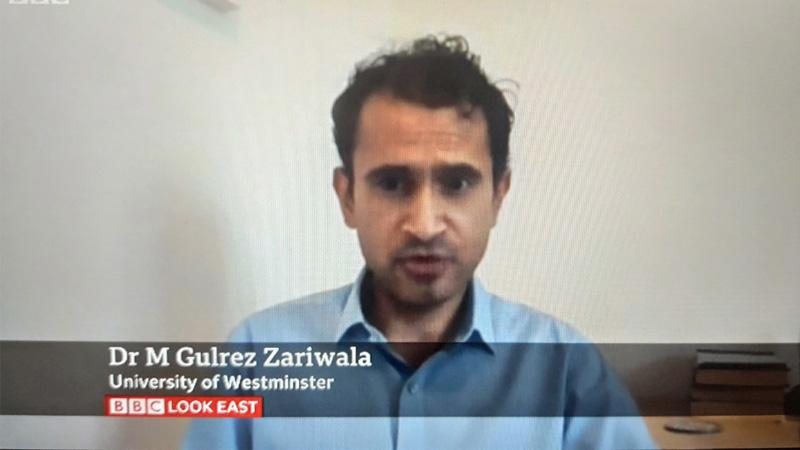Dr Mohammed Gulrez Zariwala, Assistant Head of School for the School of Life Sciences, was interviewed by BBC Look East and BBC Radio Three about Westminster donating equipment to the coronavirus testing facility in Milton Keynes. The Mirror also mentioned the University in an article about testing.

Talking with BBC Look East about Westminster’s donation of its specialist kit to the coronavirus testing facility in Milton Keynes, Dr Zariwala said: “The government are looking for input, volunteering and resources from the academic sector, universities and indeed from wherever else they can. It’s a unique three-way partnership and it’s a matter of pulling all the resources in one place so that you can scale up their abilities.”
Talking to BBC Radio Three, he explained that the piece of kit supplied to the facility is an Applied Biosystems 7500 PCR machine, and how PCR is the main technique used to detect the antigen if you have the infection.
He said: “It is a standard piece of kit that’s used in research in molecular biology and we fortunately had a machine, which is the most suitable for the kind of testing that is ongoing.”
Discussing how the PCR technique works, Dr Zariwala said: “It extracts the genetic material and takes multiple copies, and when you have more genetic material available within that, it’s easy to find signatures or key points from which you can detect if the virus has spread into the body.
“Once you collect a sample from a person, you would then extract the genetic materials and run it through the PCR process, at the end of which it will give you a message if you have genetic material positive for the virus genes or will give you a negative result depending on if the person is infected or not.”
Dr Zariwala said that a single machine can run several hundred tests a day, providing further vital testing capacity for the facility.
Read an article about the testing equipment on the University’s website.


